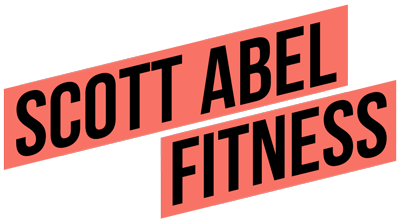How do you start a program off on the right foot? If you've tried multiple diets and “failed” in the past, and you still, y'know, have weight to lose, how do you actually change things so that this time it really is different, and you're not just doing different versions of the same thing, over and over again?
This episode was all about how to do that, and how to start a new diet or program off on the right foot, in a way that you'll actually make a real change.
Some key themes:
- Focus on strength and what you want to move towards, instead of fear and what you're trying to avoid.
- Consistency builds confidence… Consistency plus confidence builds competence… and consistency plus confidence plus competence builds a sustainable lifestyle without struggle!
- Create a strong enough “why.”
Beyond these, Scott and Mike offered 3 ideas each for creating an actual, substantial shift in your approach:
Mike's 3 ideas:
- Stop, pause, and carve out the time (i.e. book it in your calendar) to deal with some of the stuff we talked about. (This will also help wit hthe next two ideas.)
- Grab a journal and write some of this stuff down. If you're thinking about change, write out how not changing has hurt you in the past, how it is hurting you in the present, and how — if you continue to not change — it'll hurt you in the future. Now do the same for if you do change. What benefits will you enjoy 5 years from now? 10 years from now? (Etc.). (Pssst: See also Mike's Book on Journaling.)
- Figure out specific implementation intentions (and write them down). These are “if/then” scenarios. For example, *if* you get caught in a meeting, what will you do? What's your if this happens, then I will do this strategy?
Scott's 3 ideas:
- Figure out powerful clichés that you can turn back to when things get challenging. Scott's example was telling himself “a champion wouldn't do _______” whenever he was tempted to do something he knew didn't serve his goals (e.g., take the bus instead of talking home with his groceries).
- Try the “and then what?” journaling exercise. Write out your goal and pretend you achieved it. Now ask, “and then what?” Write the answer down. Then write “and then what?” again, and answer again. Keep going for a total of five times.
- Embrace that you can either be a person of your own power and style or you can be a person of your own fears and impotence.
Closing idea: Have fun! Don't make it harder than it needs to be. Figure out ways to enjoy the journey.
